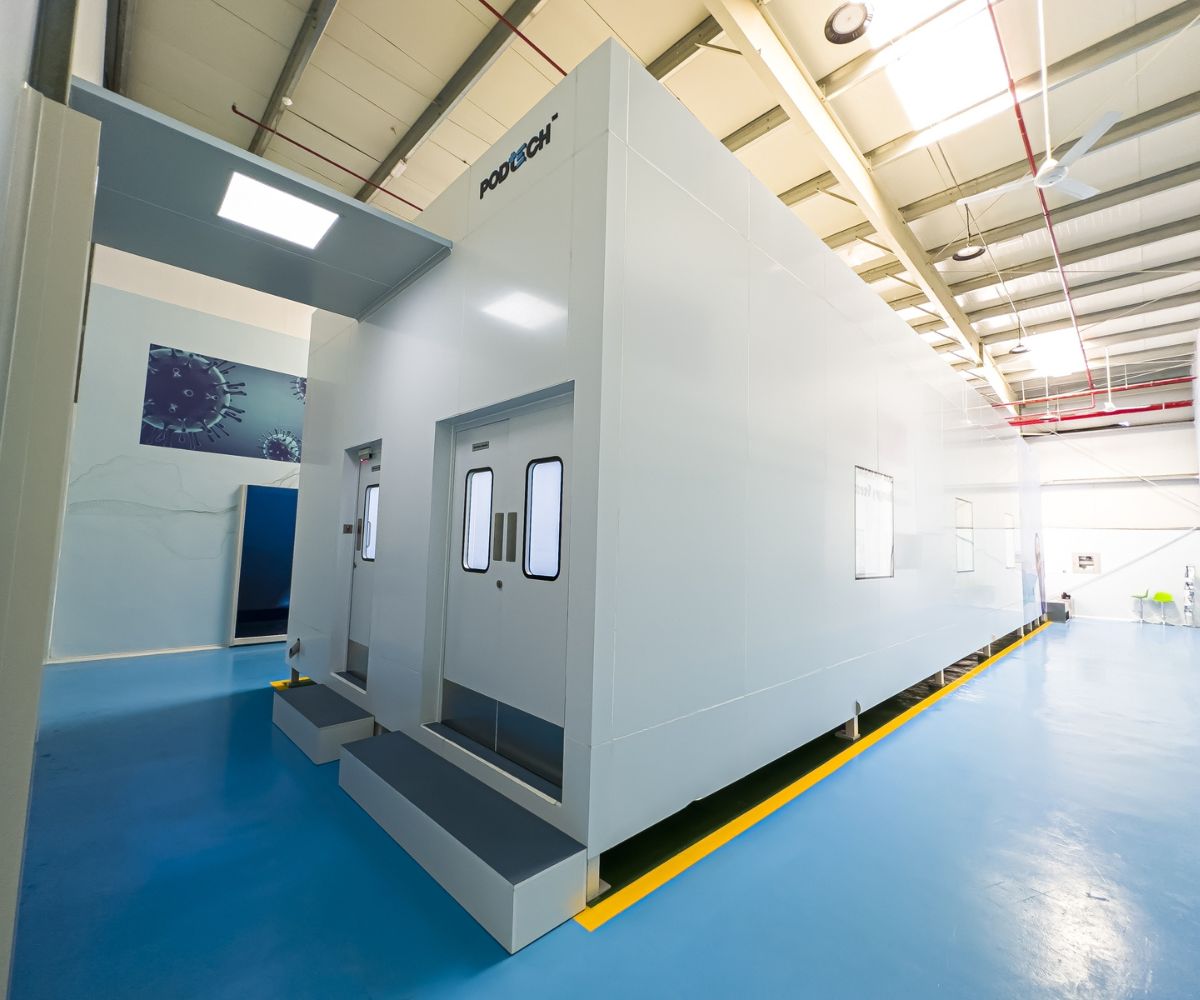In the world of advanced manufacturing, maintaining an environment free from contaminants is crucial. The emergence of self-contained clean rooms has revolutionized the industry by offering an efficient, flexible, and cost-effective solution for achieving and maintaining ultra-clean conditions. This article explores the significance, benefits, and future potential of self-contained clean rooms in various sectors.
What is a Self-Contained Clean Room?
A self contained clean room is a modular, standalone unit designed to provide a controlled environment with low levels of pollutants such as dust, airborne microbes, aerosol particles, and chemical vapours. These rooms are equipped with High-Efficiency Particulate Air (HEPA) or Ultra-Low Penetration Air (ULPA) filters, temperature and humidity control systems, and pressure regulation to ensure the highest standards of cleanliness.
The Evolution of Clean Rooms
Traditional clean rooms are custom-built facilities that require significant investment in infrastructure, including complex HVAC systems, specialized materials, and ongoing maintenance. While effective, these clean rooms can be cost-prohibitive for many organizations, particularly smaller companies or those with temporary or mobile needs.
The advent of self-contained clean rooms addressed these challenges by offering a portable, modular alternative. These units can be quickly assembled and disassembled, relocated, and scaled according to specific needs, providing unparalleled flexibility without compromising on performance.
Advantages of Self-Contained Clean Rooms
Cost-Effectiveness
One of the primary benefits of self-contained clean rooms is their affordability. The modular design reduces construction costs and minimizes the need for extensive HVAC systems and other infrastructure. Moreover, operational costs are lower due to efficient energy usage and reduced maintenance requirements.
Flexibility and Scalability
It can be easily configured to meet the specific requirements of various industries. Their modular nature allows for rapid reconfiguration or expansion, enabling companies to adapt quickly to changing production demands or technological advancements.
Portability
These units can be transported and set up in different locations as needed, making them ideal for industries requiring temporary clean environments or those operating in multiple sites. This portability is particularly beneficial for field research, disaster response, and military applications.
Quick Deployment
Unlike traditional clean rooms, which can take months or even years to construct, self-contained units can be deployed in a matter of days or weeks. This rapid deployment is crucial for industries where time-to-market is a critical factor.
Regulatory Compliance
It is designed to meet stringent industry standards and regulatory requirements, ensuring that products manufactured within these environments comply with health and safety guidelines. This is especially important in pharmaceuticals, biotechnology, and electronics manufacturing, where contamination can have severe consequences.
Applications Across Industries
The versatility of self-contained clean rooms makes them suitable for a wide range of applications:
Pharmaceuticals and Biotechnology
These industries require ultra-clean environments to prevent contamination of drugs and biological products. Self-contained clean rooms provide a controlled environment for manufacturing, testing, and research, ensuring the integrity and safety of pharmaceutical products.
Electronics Manufacturing
In the production of semiconductors, microchips, and other electronic components, even the smallest particles can cause defects. Self-contained clean rooms provide the necessary level of cleanliness to ensure the quality and reliability of electronic devices.
Aerospace
The aerospace industry demands precision and cleanliness in the manufacturing and assembly of components. Self-contained clean rooms offer the necessary environmental control to prevent contamination and ensure the performance and safety of aerospace systems.
Medical Devices
The production of medical devices, such as implants and surgical instruments, requires strict contamination control. Self-contained clean rooms ensure that these products meet regulatory standards and are safe for use in medical procedures.
Research and Development
Academic institutions, government laboratories, and private companies rely on clean rooms for various research activities. Self-contained clean rooms provide a cost-effective and flexible solution for conducting experiments and developing new technologies.
Future Trends and Innovations
The future of self-contained clean rooms is promising, with ongoing advancements aimed at enhancing their efficiency, sustainability, and integration with emerging technologies. Key trends and innovations include:
1. Smart Clean Rooms
The integration of Internet of Things (IoT) technologies allows for real-time monitoring and control of clean room environments. Smart sensors and automation systems can optimize temperature, humidity, and airflow, ensuring consistent conditions and reducing energy consumption.
2. Sustainable Design
As environmental concerns grow, there is a push towards developing clean rooms with sustainable materials and energy-efficient systems. Innovations in renewable energy sources and green building practices are expected to make self-contained clean rooms more eco-friendly.
3. Advanced Filtration Systems
Research into new filtration technologies is ongoing, to develop filters that can capture even smaller particles and harmful microorganisms. These advancements will further enhance the cleanliness and safety of self-contained clean rooms.
4. Modular and Customizable Solutions
The trend towards greater customization and modularity will continue, allowing companies to tailor clean room environments to their specific needs. This will enable more precise control over production processes and improve overall efficiency.
Conclusion
It represent a significant advancement in the field of controlled environments. Their cost-effectiveness, flexibility, and ease of deployment make them an attractive option for a wide range of industries. As technology continues to evolve, these modular units are set to become even more efficient, sustainable, and integrated with smart technologies, ensuring their place at the forefront of modern manufacturing and research. The ongoing innovation in this field promises to drive further improvements in product quality, safety, and operational efficiency, cementing the importance of self-contained clean rooms in the years to come.
Stay tuned for more news and updates on Frolic Beverages!











